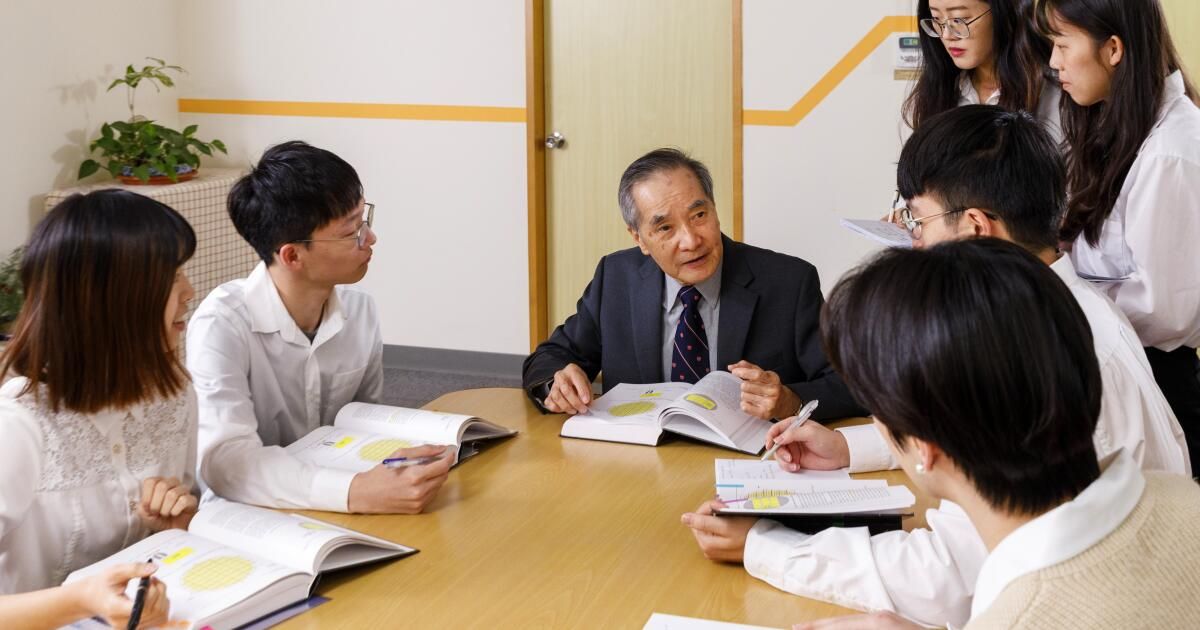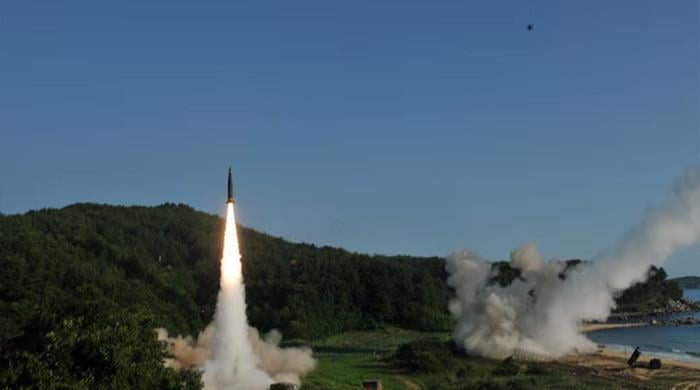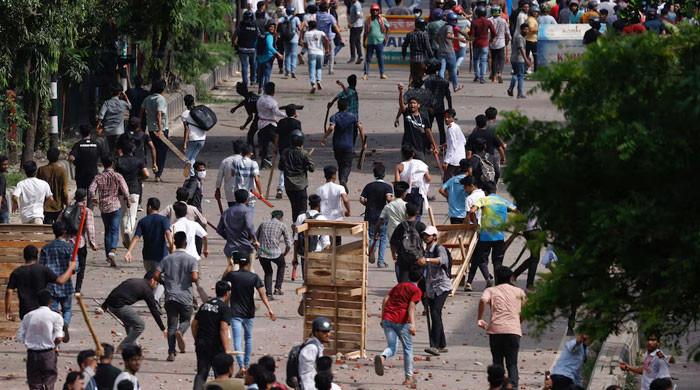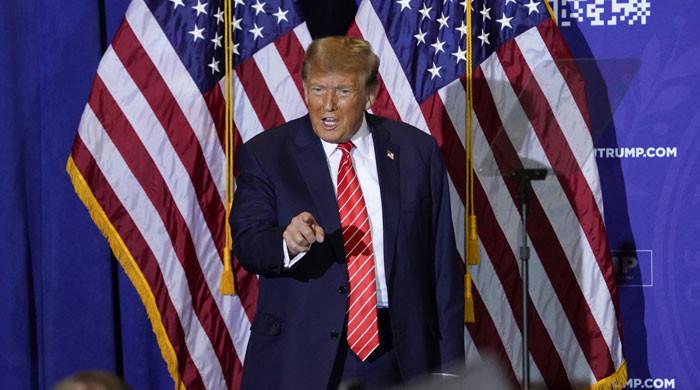Burn Lin knows every detail of the tiny chips that power his phones, cars and gaming consoles, and he knows there aren't enough workers to meet the growing demand.
The electrical engineer began his career at IBM in 1970 but eventually returned to his roots in Taiwan, where his work helped turn the island's democracy into the chip-making capital of the world. He led technological advances at Taiwan Semiconductor Manufacturing Co., today the crown jewel of Taiwan's tech industry.
Now he has been tasked with preparing the next generation of leaders for a murkier, more arduous future in the technology that makes so much of modern life possible.
The semiconductor world has changed since Taiwan Semiconductor Manufacturing Co.’s former vice president left the company. A severe chip shortage triggered by the pandemic exposed the breaking points of a complex global supply chain. Rising geopolitical tensions have sown distrust and led countries to pour money into their own chip manufacturing facilities.
Burn Lin led technological advancements at Taiwan Semiconductor Manufacturing Co., now the crown jewel of Taiwan's technology industry. Burn Lin accepts the Presidential Innovation Award.
(Burn Lin)
Meanwhile, artificial intelligence is driving demand for more efficient microchips, but semiconductor engineers are running up against the physical limits of Moore's Law, a long-held projection that the number of transistors on an integrated circuit will double every two years, making them smaller and faster.
The number of workers needed to design, manufacture, test and package all these chips will be enormous. According to financial services and consulting giant Deloitte, semiconductor companies will need an additional one million skilled workers or more by 2030.
Lin, now dean of the School of Semiconductor Research at Taiwan’s Tsinghua University, knows he won’t be able to fill that gap. His school — created with government support three years ago to address a growing talent shortage — trains about 100 students each year, far fewer than the 10,000 additional workers needed annually in Taiwan alone. But he hopes those few will become leaders who keep Taiwanese companies on the cutting edge.
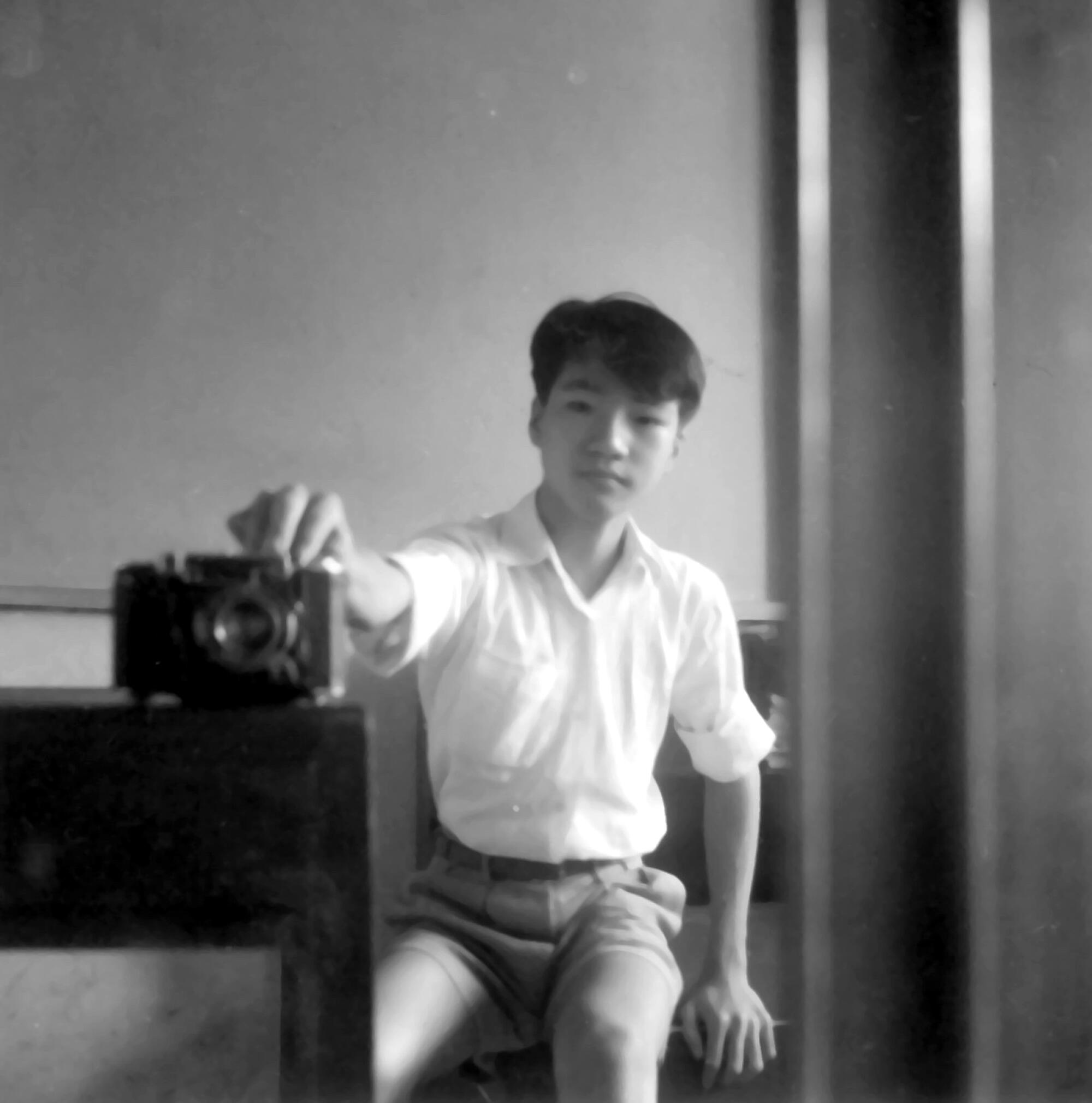
Burn Lin takes a selfie when he was young.
(Burn Lin)
For an island facing threats of military attack from China (which claims the island as part of its territory), a competitive edge in inimitable technology is even more crucial. Taiwan makes a fifth of the world’s chips, and 69% of the most advanced ones. That dominance has become known as Taiwan’s “silicon shield,” as nations that rely on Taiwanese chips have incentives to help protect it.
The Times spoke to Lin about his efforts to keep Taiwanese talent at the forefront as the race for self-sufficiency in the chip sector intensifies, and how that competition is changing the industry. The interview has been edited for brevity and clarity.
How will the semiconductor worker shortage affect the industry? Does it mean some countries will be left behind?
Countries have become more selfish, so to speak. They only care about their own benefit and forget that the semiconductor industry needs a lot of collaboration to grow.
There are some countries that are good at manufacturing equipment: for example, the United States, Japan, and Germany. There are some countries that are very good at design, very innovative. The United States is also a big contributor in that area. And then there are countries that are good at manufacturing. Even in the United States, there is Intel and Micron. And people think that our TSMC is very powerful, but if we don't get all the materials and equipment, we stop operating in a few weeks.
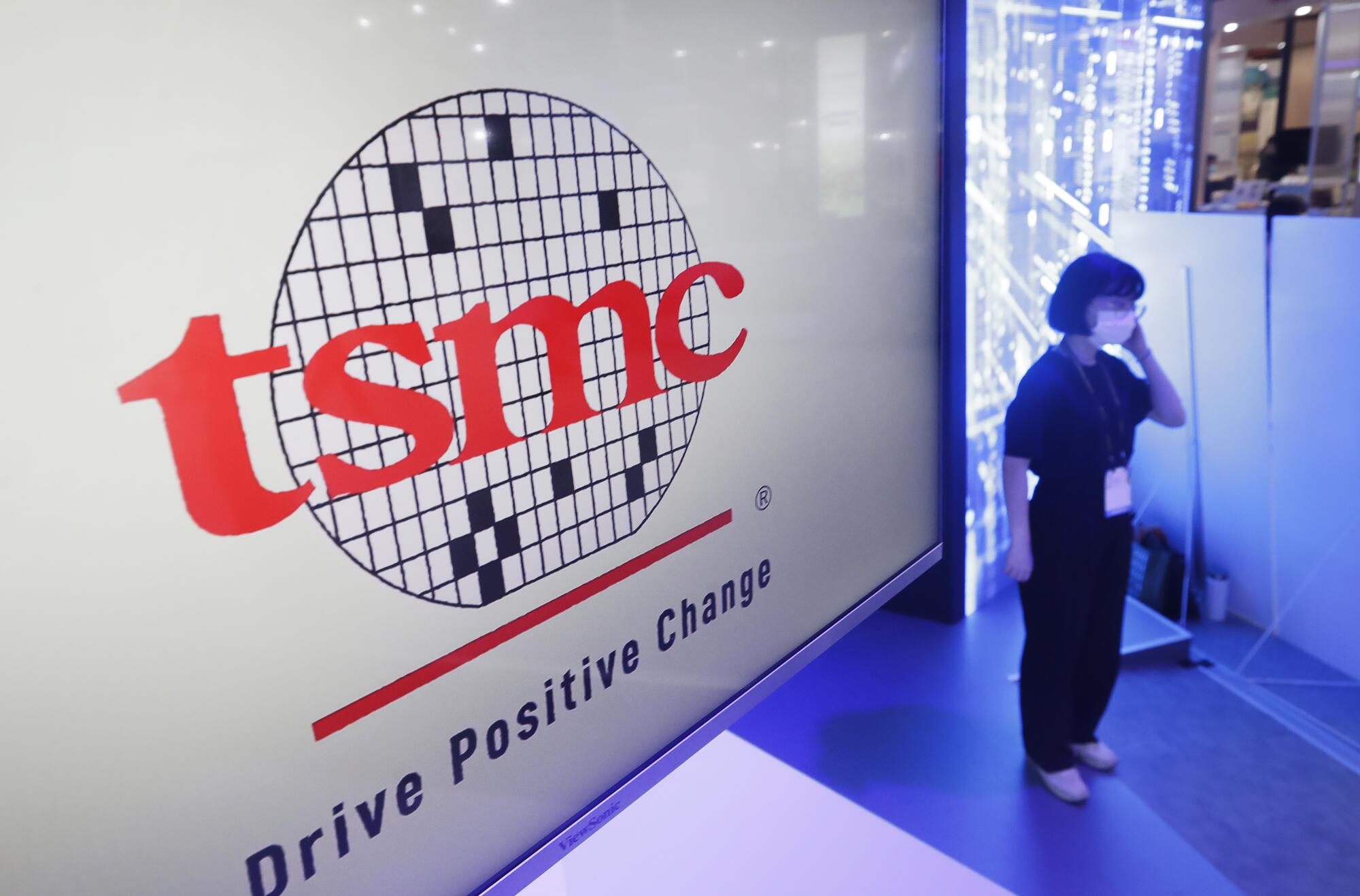
The logo of TSMC (Taiwan Semiconductor Manufacturing Co.) during the Taiwan Innotech Expo at the World Trade Center in Taipei, Taiwan, in 2022. Taiwan is reducing its dependence on mainland China as it seeks to insulate itself from pressure from Beijing while forging closer economic and trade ties with the United States.
(Chiang Ying-ying/Associated Press)
So if there are four countries that want to be independent, the process becomes more complex and the efforts are very unprofitable. Instead, four times as much research has to be done and many countries duplicate the work of others.
Does that mean that accepting interdependence would alleviate labor shortages?
Yes, that would alleviate the situation a lot. In the case of American students, most of them want to go into design, if they go into semiconductors at all. Where are the people for other disciplines?
Is the shortage due to growing demand or are there fewer people interested in this field?
Both.
The need for more advanced chips is very high and there are many other fields that people can choose from. Even in Taiwan, people used to choose semiconductors as one of their main choices, but now they have their sights set on many other areas, such as the financial sector, medicine, life science, politics, etc.
I think that in the United States or Japan the situation is worse, because those people have even more options. They prefer to work for Apple or Google rather than work for… [a chipmaker like] Intel. Intel used to be a very attractive employer. That's not the case anymore.
Most new students want to study design rather than manufacturing processes. That is the global trend. We are no exception. People find it much easier to sit there, don't they? They don't have to dress up to go into clean rooms. [where semiconductors are made]. They may simply move their fingers instead of moving their feet.
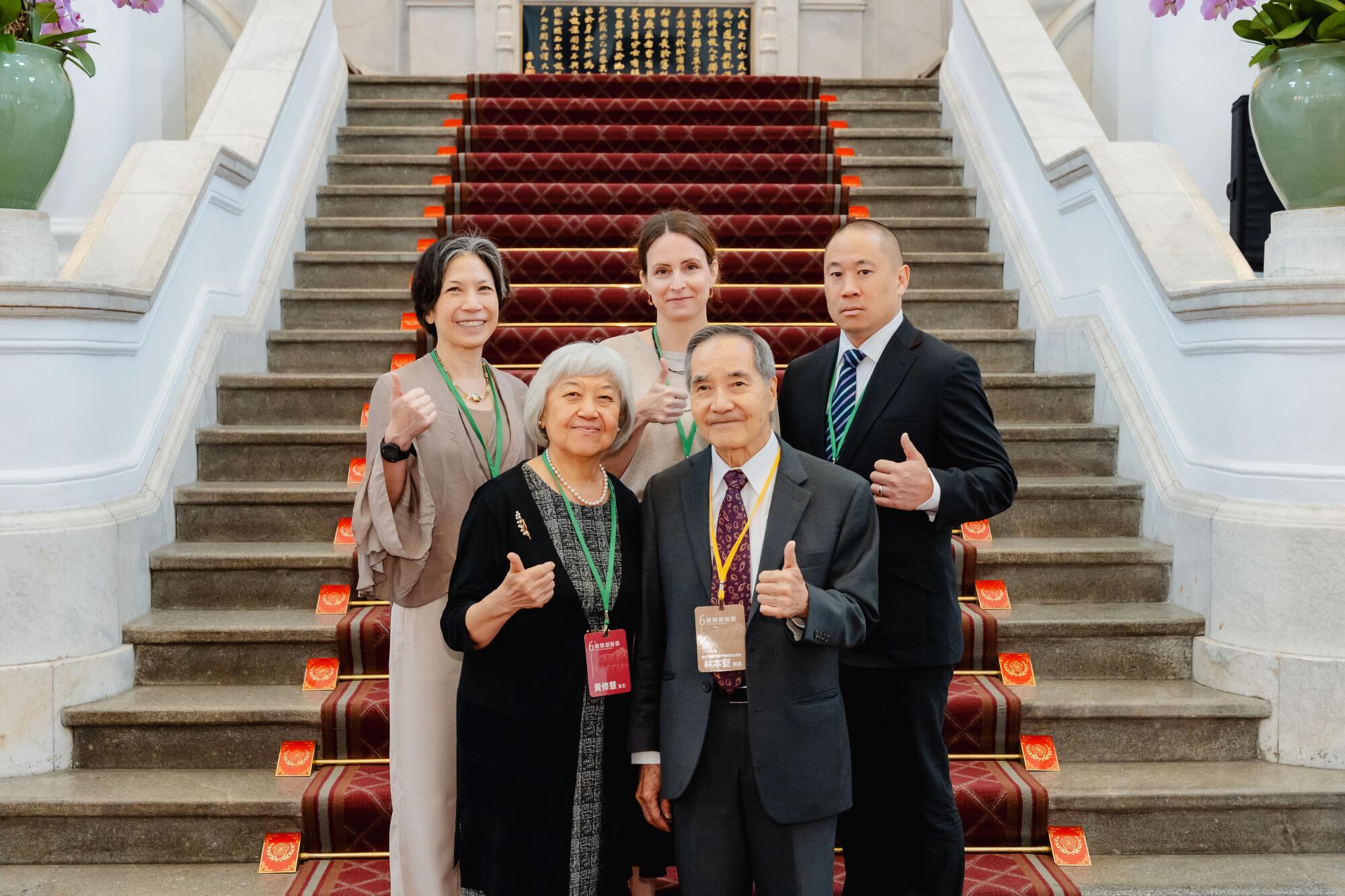
Burn Lin photographed with his family.
(Burn Lin)
There is also this kind of social influence. It is very easy to access the Internet and very soon you realise that all the students are contaminated. Everyone is connected to the network and everyone thinks that it is much better to work sitting at a desk than in a clean room. Many people are opting for a simpler life.
We need to make life more pleasant for people. Taiwanese companies, for example, have gyms, cafeterias, good food and leisure facilities. That's why they try to make the workplace attractive.
What has been the biggest change since you started working in the private sector?
When I was working in the United States and Taiwan, we spent a lot of time and effort shrinking circuits from one generation to the next.
Moore's Law of scaling has slowed down, or I would even say stopped. The shrinkage has to stop because we're getting down to the atomic level. But if we use the spirit of Moore's Law, the spirit is that technology will continue to move forward. If we reorganize the chip in a better way to use memory, we can make it run faster with less power, but without changing the size.
Sometimes it's easier, sometimes it's not. Over the last few decades, we've become very lazy about innovating, because we think, “If I can scale it down, I can make it more attractive. Why bother thinking of new things?”
The university plays a very important role, because it can afford to study new and high-risk things, which require a lot of time to be studied to make sure they are reliable and suitable for large-scale manufacturing. At the moment, quantum computing is still at a very early stage and those who enter it take on a very high risk, but we should continue to do so.
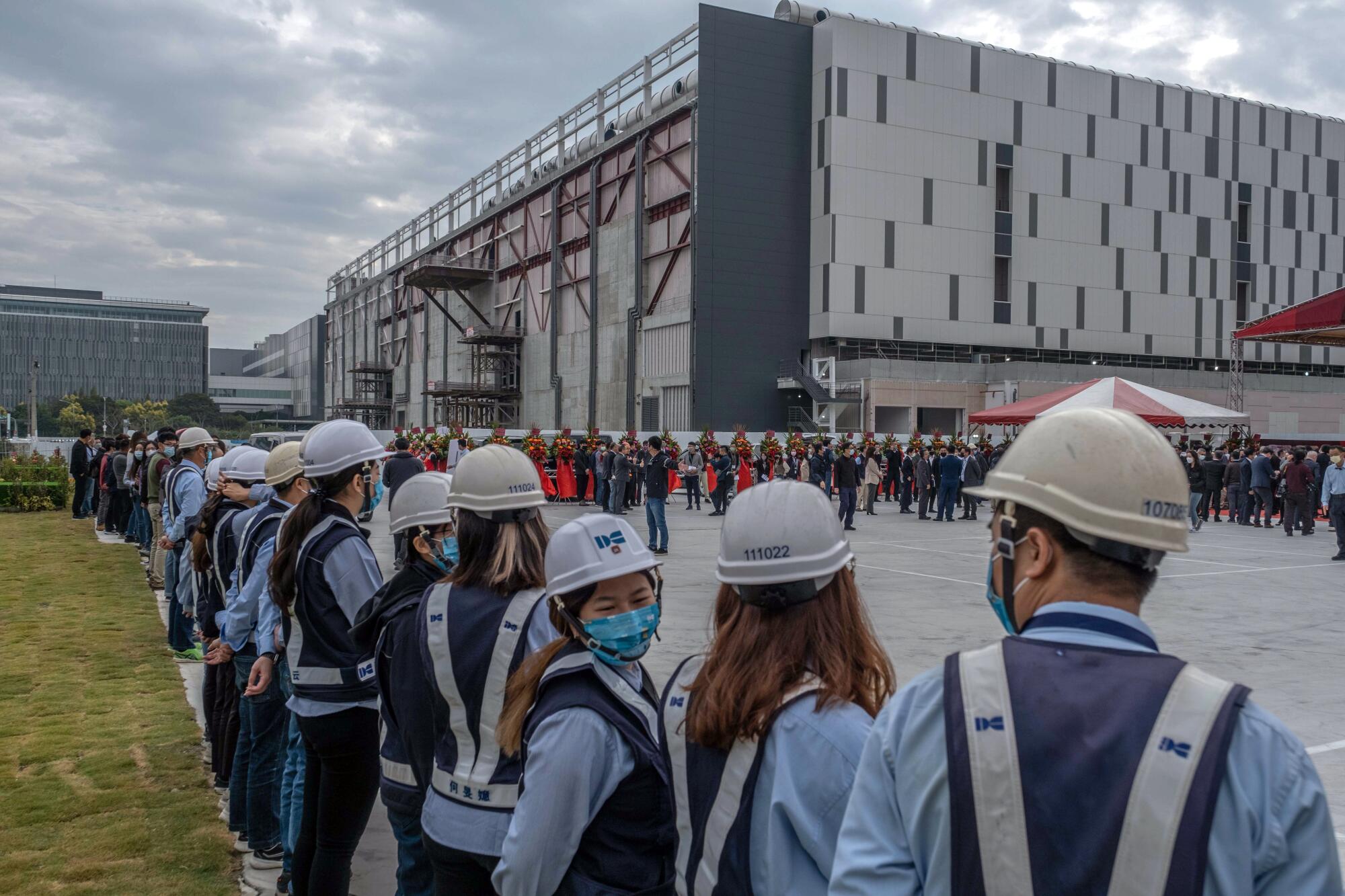
Workers gather for a ceremony marking the start of mass production of advanced 3-nanometer chips at a Taiwan Semiconductor Manufacturing Co. facility in Tainan, Taiwan, in December 2022.
(Lam Yik Fei/Getty Images)
Why did your university add a course on geopolitics for engineering students?
In addition to making better chips, we now have to satisfy policymakers and the people who control the money.
Learning about the topic doesn't mean that they have to become experts. The industry has to hire some experts in geopolitics or economics to guide them and negotiate or lobby on their behalf. But in the case of students, they have to be exposed to all kinds of possibilities.
For example, if the client is a government, then you have to know what they are thinking and what they need in addition to technology. If the client is in a foreign country, then you have to worry about whether you can maintain the relationship or whether other political forces will break it up.
Has it become more difficult to work in the semiconductor industry compared to 20 or 30 years ago?
A: Yes, it is more difficult, but it is more fun, less routine and it is a growing industry, so people see potential in it.

